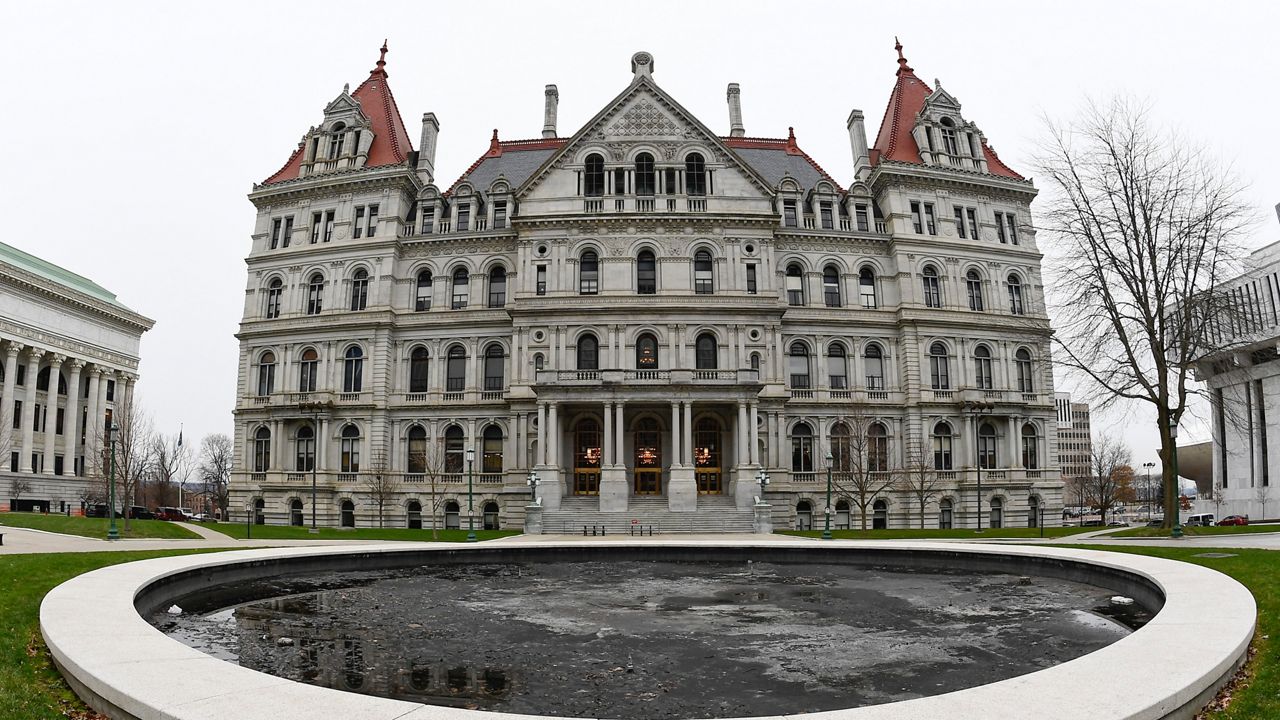The next phase of Albany’s budget negotiations kicked off Monday night, as both Democratic state Senate and Assembly conferences were poised to release their “one house” budget proposals.
Only the state Senate’s document was released online late Monday night as R1952. The documents establish the Legislature’s stance on Gov. Kathy Hochul’s 2024 $233 billion budget proposal released in January.
Largely dealing with fiscal issues rather than policy, the proposals are introduced as legislation and slated for a chamber-wide vote later this week. Sources describe the proposals as symbolic, because a three-way agreement is needed between the governor and both legislative houses in order to finalize the multi-billion dollar state budget.
Sources told Spectrum News NY1 that legislators are expected to release an agreement on Hochul’s proposal to grant New York City at least $2.4 billion to help fund the migrant crisis, details tied to a new statewide housing policy including developer subsidies and tenant protections, as well as cannabis enforcement and a plan to combat retail theft.
“There are system-wide issues that need to be addressed as it relates to Medicaid reimbursements, but there are also individual institutions like the one that I represent, SUNY Downstate – where you can expect us to make progress in that area as well,” State Sen. Zellnor Myrie (D-Brooklyn) told NY1 on Monday afternoon, ahead of the full proposal’s release.
“New Yorkers are crunched in housing and childcare as well, so you’re [going to] see us hint at afterschool and investing more afterschool and making afterschool programing universal,” he added.
“There so many homeless people coming in, new migrants, new immigrants, and there hasn’t been enough supply to solve this problem."
"Between the 421a issue and Good Cause Eviction, you have to protect tenants' rights,” said Assemblyman Ron Kim (D-Queens) of his chamber’s plan.
“Somewhere in the middle, we have to come together and fix this, because we can’t come home without a real housing solution for the next two to five years,” the assemblyman said.


